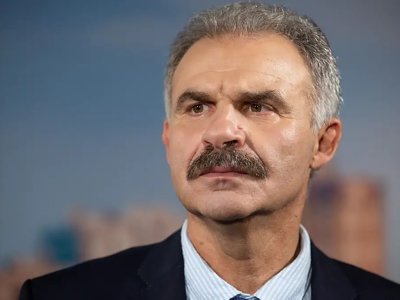Prime minister refuses to back bill on parliamentary investigations

Prime Minister Alikhan Smailov has refused to support a draft bill that would allow parliament to conduct investigations into matters of public interest.
The bill “On Parliamentary Investigations” was initiated in September by ten MPs, independent and representing the Ak Zhol and National Social Democratic parties.
In response to the MPs last week, Smailov’s office said conducting such investigations would go beyond the powers given to parliament by the Constitution.
The MPs linked their initiative to the ongoing government efforts to recover illegally acquired assets. The process has been launched by President Tokayev as part of a fight against oligopoly, which he said thrived under former president Nursultan Nazarbayev.
The MPs said, in a letter to the prime minister, that the process had created “the necessity to give the parliament the authority to carry out parliamentary investigations”.
There are many questions about the transparency of the process. Many criticise it as selective. There are also concerns that it could be used to settle scores, or that it could be aimed at redistribution of assets, rather than fighting illegal links between officials and major business.
The MPs said parliamentary investigations would help strengthen public and parliamentary control over the other branches of power.
They added they could serve as “a mechanism for giving a political assessment on behalf of the public of the most-debated issues, and revealing facts that might have been concealed from the public”.
Rejecting the move in a letter on 19 October, Prime Minister Smailov said that parliamentary investigations were introduced “mainly” in countries with a parliamentary form of government, whereas Kazakhstan was a presidential system, “i.e. the power to control the activities of the executive branch of power is given to the president”.
Smailov emphasised that the parliament’s powers were already defined by the Constitution. According to it, the parliament has the authority to investigate the president if the latter commits treason.
“The Constitution does not envisage any other kinds of parliamentary investigations,” he said.
The prime minister also noted that there were already mechanisms in place allowing parliament to monitor the government’s activities – approving candidates for prime minister and other ministers, conducting parliamentary hearings, sending queries to government bodies and so on.
It concluded that the proposed parliamentary investigations’ mechanism “would go beyond the legislative body’s powers defined by the Constitution”.
In July, President Tokayev signed into law a bill on recovering assets acquired by means of connections with people in power. The main targets of the law are businesses associated with current or former officials, or senior managers in state-owned companies.
According to the General Prosecutors’ Office report in July, the government has recovered 1.9bn dollars worth of such assets since 2021. Some of those assets belonged to members of former president Nazarbayev’s family – brother Bolat Nazarbayev, nephew Kayrat Satybaldy, son-in-law Timur Kulibayev, son-in-law Kayrat Sharipbayev, and Kayrat Boranbayev, who was in the past linked to the family through his daughter’s marriage, the chief prosecutor’s office said.
- Последние
- Популярные
Новости по дням
8 мая 2024







